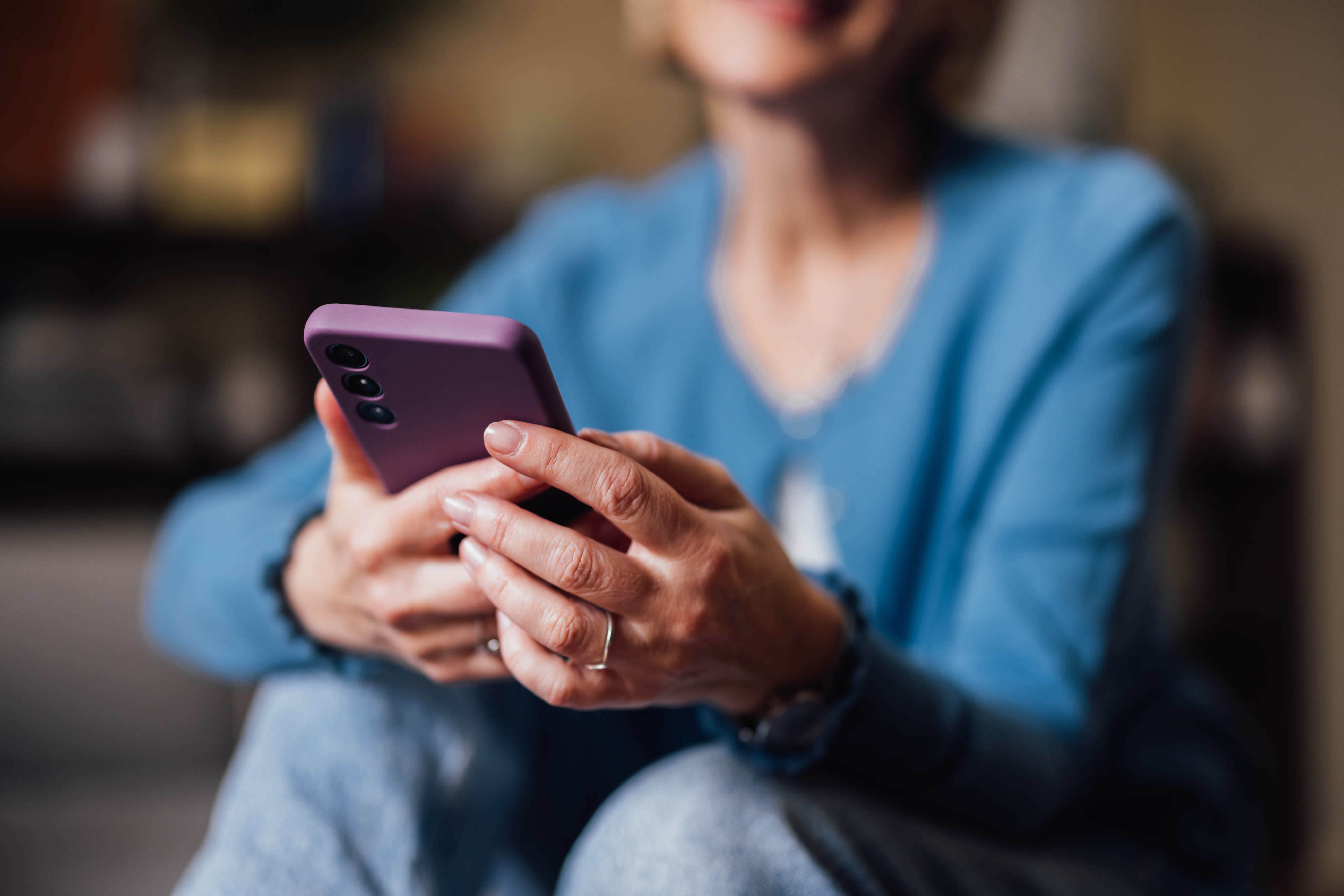Note: This post contains mentions of childhood sexual abuse.
Last month, an investigation by the New York Times shed light on a disturbing secret that's been hiding in plain sight. According to the reporting, many parent-run accounts sharing images of their children on apps like Instagram have amassed large audiences of adult men who express sexual interest in minors.
Since the report was published, parents have been talking about how they can better protect their kids' images and information online — including momfluencer Samantha Kastenholt (@SamanthaKastenholtt), who has gone viral for sharing that she's not going to post pictures or videos of her daughter anymore.

In a video that's been viewed over 1.5 million times, Samantha shares her decision, saying, "My husband and I came to a decision today that we're no longer going to show our daughter Seven's face anymore." She continues, "We've had a long talk about this, and I just feel like we live in a very disgusting world."
Samantha, who is 36, told BuzzFeed, "I had been posting about her since she was born till she was 7 months. Then I decided to stop. I regret this every day!"
Samantha said that she shared her whole fertility journey online, so it meant a lot to her to be able to share photos and videos once her daughter was born. "I tried to get pregnant for five years while having endometriosis, and nothing was successful," she explained. "We decided to try IVF [in vitro fertilization] and found out that I also have low eggs for my age. So after two rounds of IVF and only one egg, I somehow managed to get pregnant by the grace of God. She is an absolute miracle, which is why I was so excited to show her off when she was born."

However, as months went on, Samantha began to notice unsettling trends in the way her audience was interacting with content involving her baby. She told BuzzFeed, "I started to notice the saves on my videos started to get crazy high, some reaching over 50,000. In the back of my head, I was always thinking this wasn’t right, but I wasn’t aware that predators will take to social media to find children. I am so upset with myself for allowing it to go this long."
And she's encouraging other parents to avoid posting images of their kids as well. "We have to protect our babies, and the best way to do that is to keep them off the internet," she said. "I’m honestly terrified of this new social media generation because how do I tell her I don’t want pics of her online when she is a teenager??"
"I just really want people to understand the severity of posting your child on the internet," Samantha continued. "There are so many people with bad intentions, and once their pics or videos are up there, it’s free access for these people. They prey on their innocence, and it’s absolutely terrifying. Not to mention what they can manipulate with AI now. Please just take this all into consideration before sharing their precious lives publicly."
In the comments on Samantha's video, people are praising her for taking this step and encouraging other parents to follow suit.

Forensic psychologist Leslie Dobson is also sounding the alarm about the dangers of posting pictures and videos of your kids online. For 20 years, Dobson has worked with clients in the criminal justice system, including people convicted of sexual violence and sexual crimes against children, to perform recidivism risk assessments and provide expert testimony in court.

In a video that's been viewed over 18 million times, Dobson says, "I've talked to a lot of pedophiles in my career, and when they can't access child porn, do you know what they use?" She goes on to explain the upsetting findings of the New York Times report, saying, "They looked at 5,000 child accounts, and 32 million followers were adult men. Meta has disclosed that over 500,000 accounts every day have inappropriate content or interactions."
Dobson told BuzzFeed that the images child sex abusers gravitate toward have, in the past, more often been images where the child is pictured alone in vulnerable positions without adults in the frame. "The threat grows as the child is alone," she said. "There's a sexual stimulation that the pedophile can play out directly because he's not seeing an adult, which is dissuading his sexual interest. He can fully imagine the child alone, then these children and their images are being saved."
But in 2024, with the rise of AI-generated images, she said that even the most basic family photo could be manipulated in ways parents wouldn't expect: "They're being auto-generated into other 'sexier' AI images, and they're being used for child pornography on the dark web."
Dobson told BuzzFeed that there are some very specific circumstances where she's okay with posting her own kids online, but even then, she's careful about what she shares. "I think it's fine to post your kids if you know exactly who all of your followers are and your account is private," she said.

